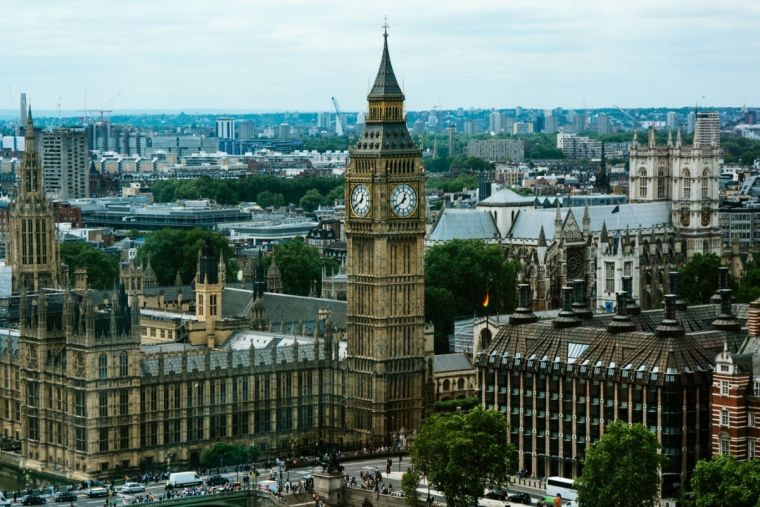Suspension of Parliament: Christians weigh in

The Church of Scotland has strongly criticised Boris Johnson's plans to suspend Parliament in a bid to force through a no deal Brexit.
The Prime Minister's plan to prorogue Parliament has sparked a backlash, with impromptu protests springing up across the country.
In London, traffic ground to a halt in Parliament Square as large crowds gathered on Thursday morning to protest.
Rev Dr Richard Frazer, convener of the Church and Society of the Church of Scotland, called proroguing Parliament a "cynical" move that risked undermining Britain's democracy.
"We are deeply concerned to learn of proposals to suspend the Westminster parliament for several weeks during a crucial period before the UK's planned departure from the EU," he said.
"Given the current context, this is not an act of good faith and undermines, rather than upholds, parliamentary democracy.
"The Church of Scotland has repeatedly stated that Brexit is, and remains, a divisive issue and that leaving the EU without a deal would have a damaging, long-term impact on the poorest and most vulnerable people in our communities."
He continued: "The UK Government should work towards reaching consensus in all parts of the UK about our future relationship with the EU and use whatever mechanisms are necessary to create the time for this to happen.
"This latest, and seemingly cynical move, seems a step in the very opposite direction which increases the risk of the UK crashing out of the EU in a way that will cause real harm to our communities and our shared wellbeing."
On Twitter, responses to the suspension of Parliament were mixed.
Anglican theologian John Milbank called it "populist tyranny".
"Boris is effectively behaving as if representation of the Brexit referendum result were the direct source of his government's legitimacy. Hence Parliament can be bypassed. This is populist tyranny," he said.
John Ritzema, research student in Theology and Biblical Studies at King's College, London, said it was "grubby politics".
"Johnson is playing by the letter, not the spirit of the constitution," he said.
"It's grubby, morally unpleasant politics, and I think remainer criticisms are largely valid. The problem is the precedent for this was set by [speaker of the House of Commons John] Bercow, to far less criticism."
He added: "A constitution which relies on convention and a certain idea of public morals can't long survive this."
Peter Lynas, director of the Northern Ireland Evangelical Alliance, suggested there was an air of hypocrisy among those criticising the suspension of Parliament.
"Where were all these MPs who want to 'defend democracy' over Brexit when Westminster voted for radical pro-abortion laws in Northern Ireland (tagged to a budget bill) without the support of any NI MP or any democrat of mandate from the people of NI?" he said.
Church of Scotland minister Alistair May said it was too premature to call it a constitutional crisis.
"This is a severe political crisis, but I'm not sure it is a constitutional crisis," he said.
"The constitution provides a clear remedy for such executive overreach. Parliament will meet next week, and has power to remove the executive. Whether it does is a clear political choice."
Marcus Walker, rector at Great St Bartholomew's in London, said: "I would suggest that not having a Queen's Speech, not testing the support of the Government in the House, not having any Parliamentary mandate for a new ministry at all in fact, would be a far graver constitutional situation."
A petition demanding that the Government refrain from proroguing Parliament has been signed over 1.3 million times in the last 24 hours.
It states: "Parliament must not be prorogued or dissolved unless and until the Article 50 period has been sufficiently extended or the UK's intention to withdraw from the EU has been cancelled."
Fr Dominic Howarth, a Catholic priest in the Diocese of Brentwood, was among those asking people to sign the petition.
"It is good that 1.25 million people have signed this in less than 24 hours; signatures will still count as an expression of the strength of feeling about this extraordinary attempt to silence parliamentary democracy. Please sign," he said.
Sean Doherty, Principal of Trinity College, Bristol, said: "We are meant to be a parliamentary democracy. Please consider signing."
He added: "This is not about supporting brexit or remain as such. It's about parliamentary sovereignty and the rule of law."











